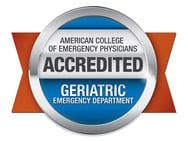Although often more expensive than seeing your own physician, urgent care is less expensive than an emergency room visit. An urgent care center usually offers immediate access to simple laboratory procedures. Non-urgent conditions can generally wait for treatment by scheduled appointment in a primary care office, while medical emergencies involving trauma should go straight to an emergency room.
The goal of the Care New England Express Care program is to make sure you have access to care when you need it if your Primary Care physician isn’t immediately available.
The Care, Right Here application is also available for virtual urgent health care needs and can be used on a smartphone, tablet, or computer.


